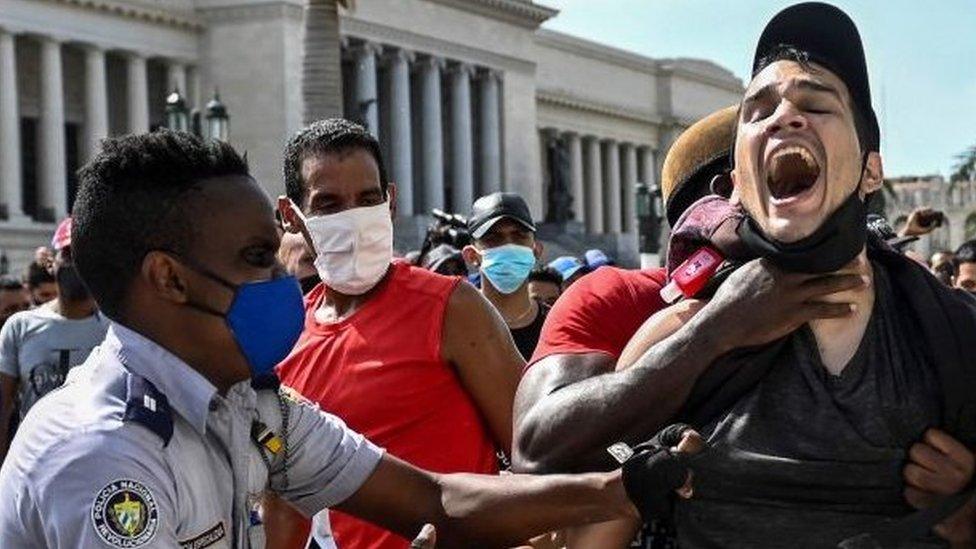Cuba cracks down on dissent ahead of protest march
- Published
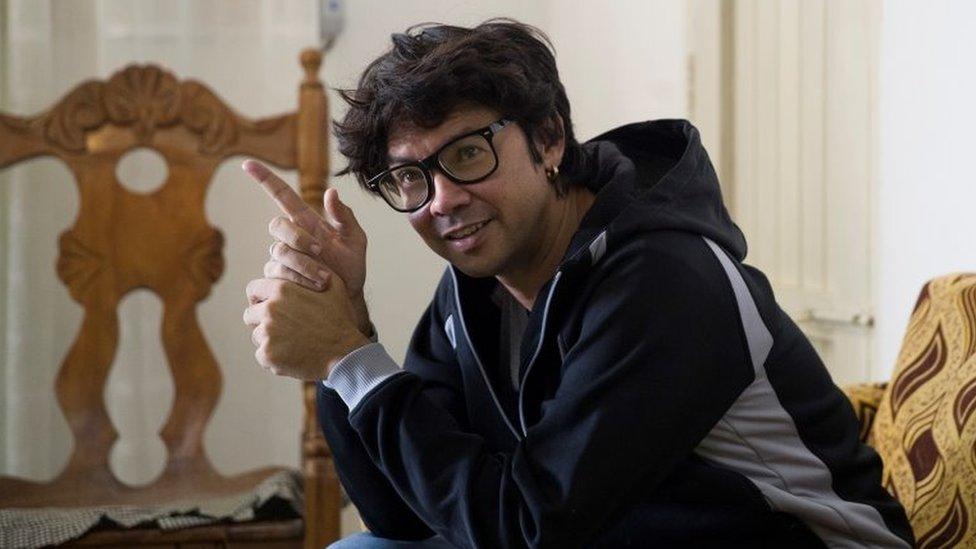
Dissident playwright Yunior García was blocked from leaving his home on Sunday
A Cuban man who had organised pro-democracy rallies to take place on Monday has been blocked from leaving his home by state security agents.
Security forces surrounded Yunior García's home and those of other leading activists on Sunday.
The ruling Communist party has banned the protests, which it says are a US-backed attempt at overthrowing the government.
Hundreds of people were arrested following protests in July.
Unauthorised public gatherings are illegal in Cuba and those who turn out to march risk being jailed.
The fact that thousands of people joined July's protests chanting "freedom" and "down with dictatorship" showed the level of discontent many in Cuba feel after more than six decades of communist rule.
In the wake of the July protests and the arrests which followed, Mr García set up a group on Facebook called Archipiélago, which sought official permission to organise peaceful demonstrations in the Cuban capital, Havana, and other cities to demand "rights for all Cubans" and the release of political prisoners.
Permission was denied but dissidents have insisted that their protest will go ahead as planned.
The BBC's Cuba correspondent, Will Grant, says that they insist people will show their exhaustion with communist rule.
Our correspondent says that there is also defiance on the part of the government and its supporters that what they consider a US-backed attempt at an overthrow will not be permitted to gather momentum.
Mr García had planned to walk to Havana's waterfront promenade, the Malecón, carrying a white rose a day ahead of the main protests.
But early on Sunday, state security agents and government supporters blocked the playwright from leaving his home.
As he attempted to communicate from a window of his apartment, pro-revolutionary neighbours living above him lowered a large Cuban flag to block him from view.
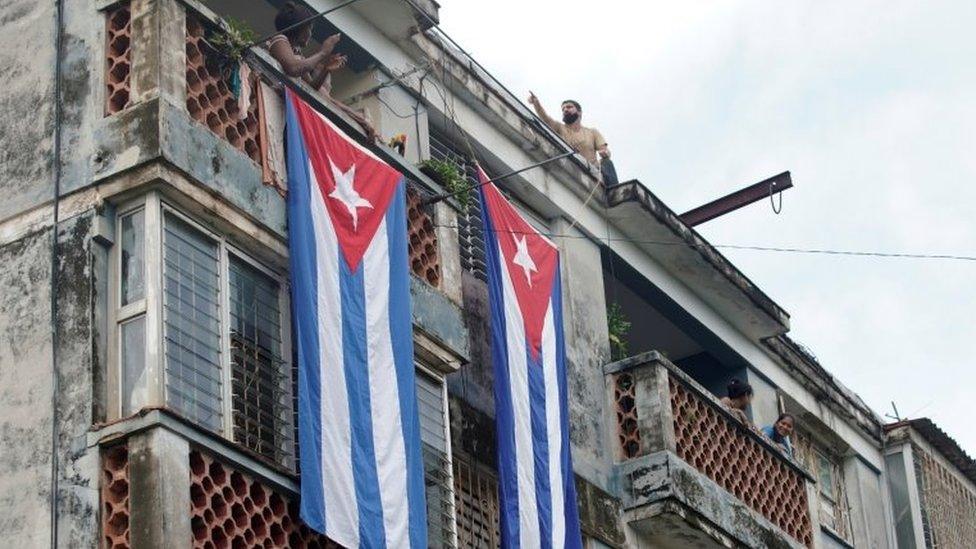
Mr García's view was blocked by Cuban flags hung from upstairs balconies
In a telephone interview with BBC News Mundo, Mr García said that his internet connection had been disrupted.
"I think they're trying to keep me incommunicado," he told BBC Mundo's Lioman Lima.
Mr García also said that "the changes in this country are unstoppable".
Other dissidents have also reported seeing state security agents patrolling the streets in front of their homes.
A number of Cuban journalists reported having been told not to leave their homes on Monday.
The Spanish news agency Efe said that the Cuban government withdrew press credentials from five of its journalists. Two were later reinstated but the Spanish government is demanding that all of Efe's staff in Cuba have their credentials returned to them.
Related topics
- Published4 October 2021
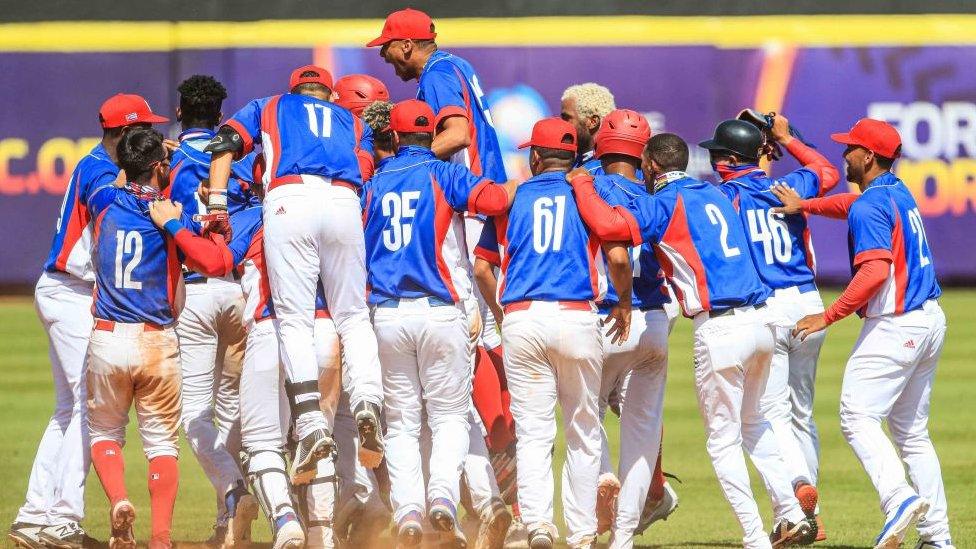
- Published18 August 2021
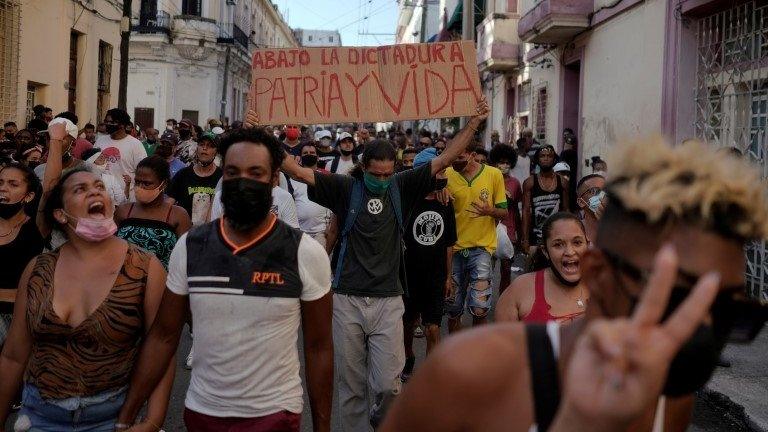
- Published22 July 2021
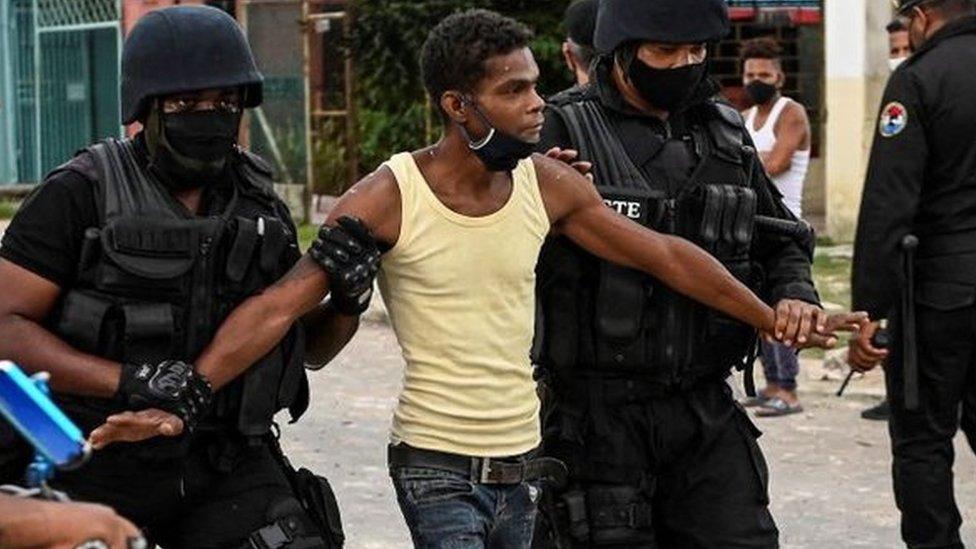
- Published15 July 2021
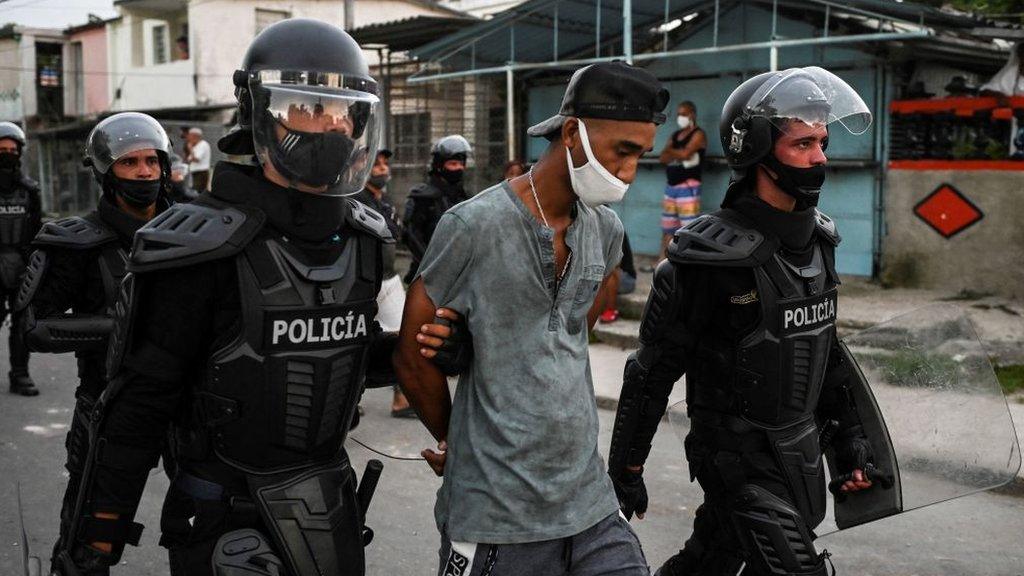
- Published13 July 2021
